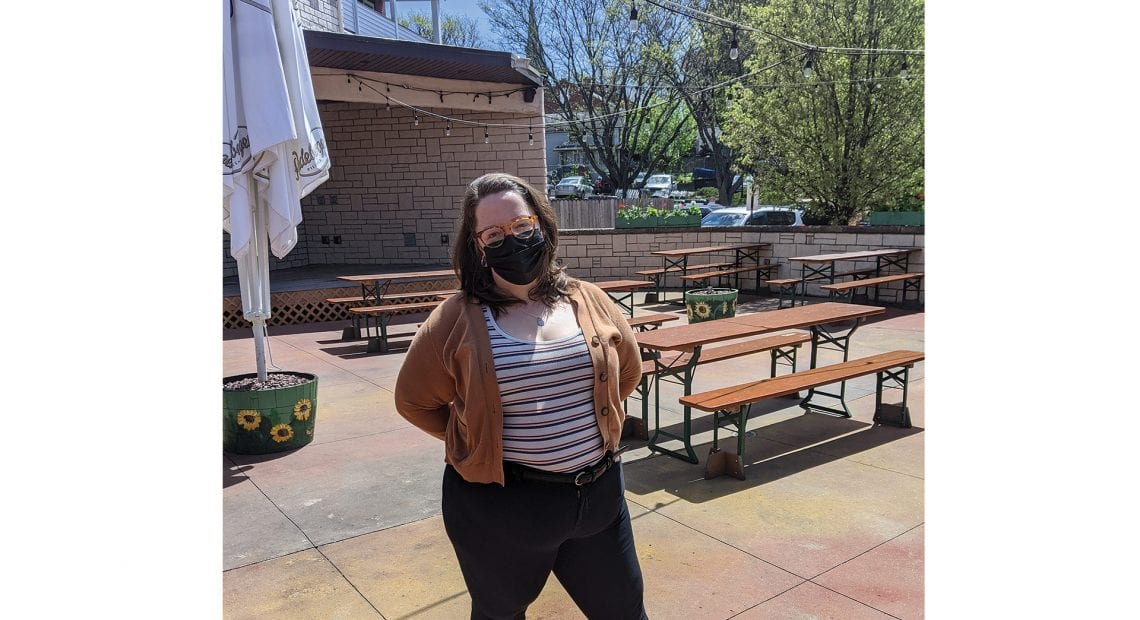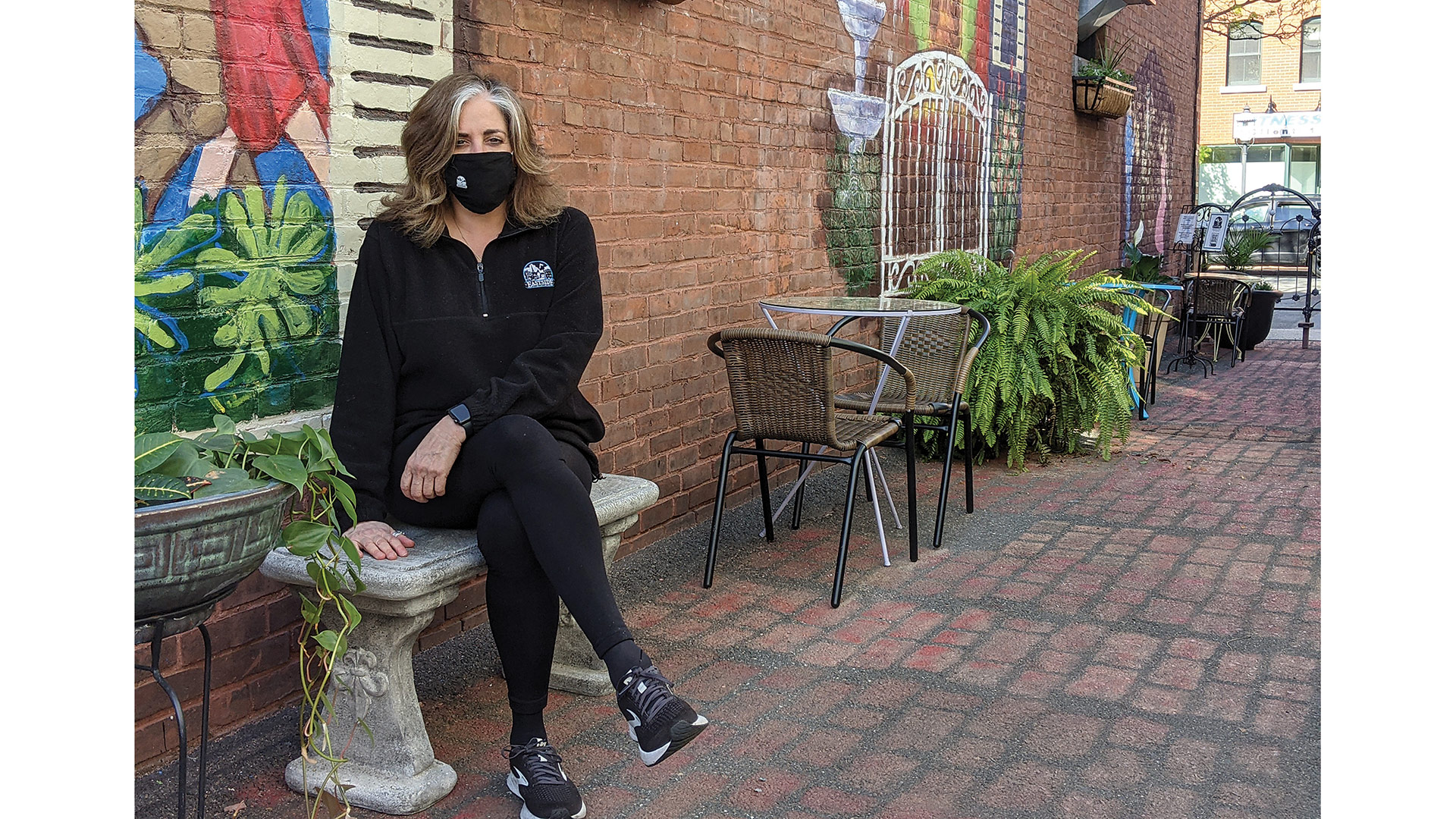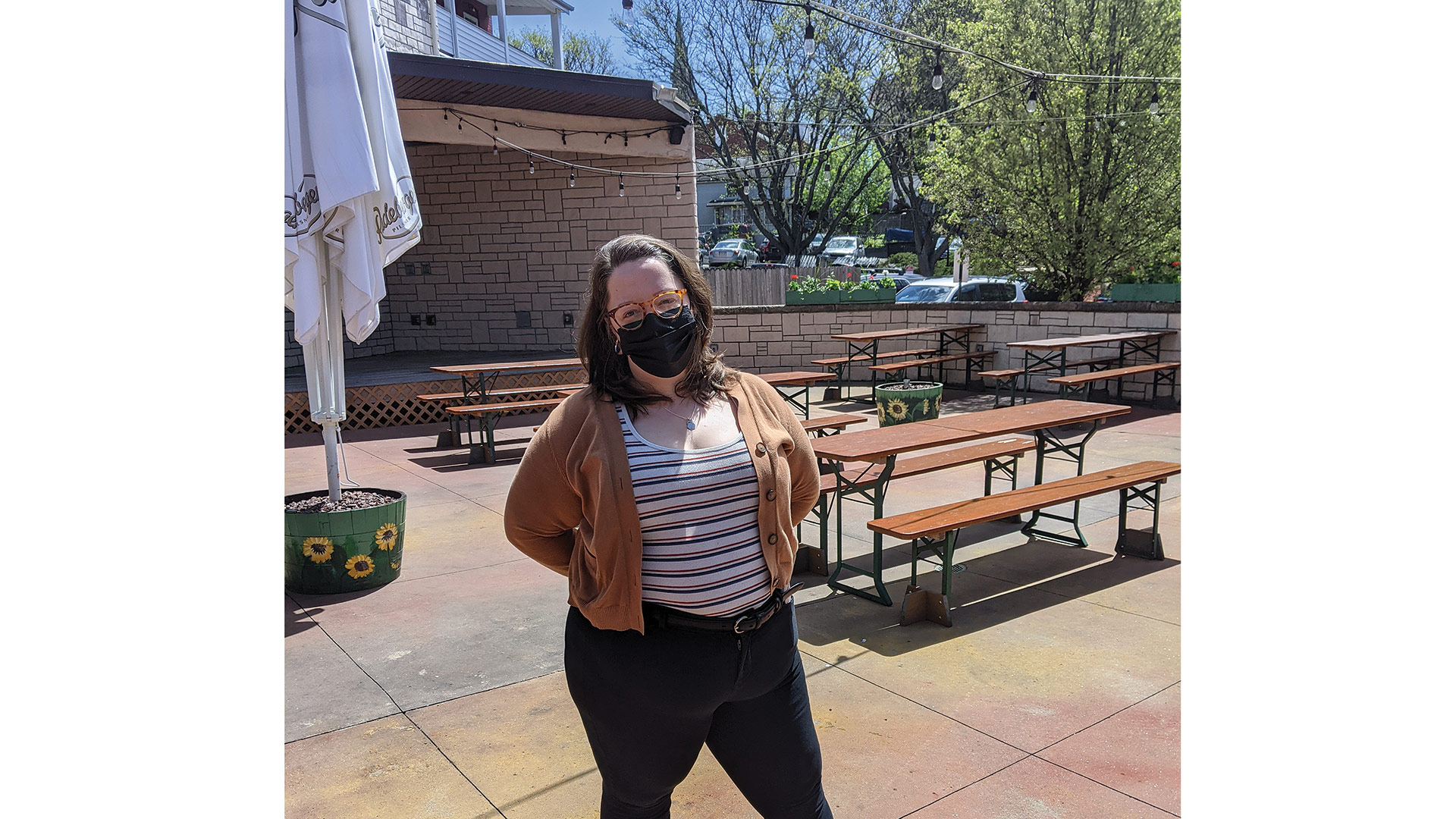Relief, Joy … and Anxiety, Too

While it was not exactly unexpected news, in some quarters, at least, Gov. Charlie Baker’s recent announcement that he was accelerating the reopening of Massachusetts — shifting the date for removing most restrictions on businesses from Aug. 1 to May 29 and also removing most mask mandates — nonetheless sent shockwaves through the business community.
And for different reasons.
For tourism-related businesses, the announcement means they gain nine precious weeks during their peak time of the year to operate without the restrictions that have hamstrung them since March 2020. Everyone was looking longingly toward that time, but it comes sooner than most anticipated.
Indeed, for those businesses and many others, the announcement comes at a time when they’re struggling to find enough workers to handle the current pace of business, let alone the surge expected to come when the restrictions are lifted, adding another rather large dose of anxiety on that issue.
And, speaking of anxiety, for those businesses that were struggling with the challenge of when and how to fully reopen their offices and bring back employees who have been working remotely, the governor’s announcement brings more layers of intrigue to what were already-complicated decisions.
As for the lifting of the mask mandate — the governor and CDC have decided that vaccinated individuals no longer have to wear masks indoors or outdoors — it has created a whole new set of headaches for employers who already had enough to deal with, said Meredith Wise, president of the Employers Assoc. of the NorthEast, adding that faith in the honor system is not shared by many employers and employees alike.

Meredith Wise
“Things are very volatile in many respects. One of our members said, ‘we’ve gotten into a period where we’re intolerant of other people’s views and perspectives, and all this adds one more layer that can potentially cause a problem in the workplace.’”
“Things are very volatile in many respects,” she said, adding that differing opinions about whether vaccinated individuals should still wear masks in the workplace prompted a fistfight recently between two now-former employees of a company in Rhode Island, an EANE member. “One of our members said, ‘we’ve gotten into a period where we’re intolerant of other people’s views and perspectives, and all this adds one more layer that can potentially cause a problem in the workplace.’”
So it was certainly with a mix of emotions that the business community greeted the news that the state has finally reached the fourth stage of the reopening plan the governor announced almost exactly a year ago: what Baker calls the ‘new normal.’
There was definitely some joy and relief, especially in the beleaguered hospitality sector, said Rick Sullivan, president and CEO of the Western Massachusetts Economic Development Council, who predicted both a quick and profound impact on such businesses.

Rick Sullivan
“All of our destination locations are going to see a pretty quick uptick in business; I think there’s a huge amount of pent-up demand in the travel and tourism industry for people to get away.”
“I know people are pretty excited about it,” he said, adding that he’s had discussions with many in the hospitality sector who were looking forward to the day when they could be at full capacity — and now it’s almost here. “All of our destination locations are going to see a pretty quick uptick in business; I think there’s a huge amount of pent-up demand in the travel and tourism industry for people to get away.
“I think people are really ready for some quality time,” he went on. “And that means travel and taking advantage of the venues we have here in Western Mass. for day trips.”
Nancy Creed, president of the Springfield Regional Chamber, agreed, noting that gaining those two all-important summer months will provide a much-needed lift for businesses in that sector.
“This is great for the hospitality sector — they really need those summer months,” she said, adding that the difference between May 29 and Aug. 1 for that sector is immense.
That said, the governor’s announcement is only the latest of many that have caught business owners and managers by surprise and left them somewhat flat-footed, with little time to adjust to changing conditions.

Nancy Creed
“Some people were a little shell-shocked with the announcement.”
“Some people were a little shell-shocked with the announcement,” said Creed, adding that this sentiment applies to everything from restaurants and tourist attractions ramping up for full capacity to business owners of all sizes now having to deal with questions on mask wearing, requiring vaccinations, bringing remote workers back to the office, and more.
Wise agreed. She said the announcement from the governor has left some wondering just what to do, especially when it comes to many of the precautions they’ve been taking for the past 14 months.
“There are definitely factions within management teams and organizations that are saying, ‘yay … let’s throw away all the masks and do away with all the social distancing and just get back to the way we used to operate,” said Wise, noting that EANE’s hotline has been flooded with calls on various aspects of the reopening plan and mask mandates. “But then there are concerns about whether people have been vaccinated or not. Do businesses put something out that says, ‘if you’re vaccinated, you don’t have to wear a mask?’ And if they do, will there then be peer pressure for people who haven’t been vaccinated to stop wearing a mask because they don’t want to stand out?”
Changing on the Fly — Again
Peter Rosskothen, owner of the Log Cabin Banquet & Meeting House, the Delaney House restaurant, and other hospitality-related businesses, has lived through a number of announcements from the governor and has become adept at changing on the fly. Still, this change is abrupt and huge in scale.
“This reversal is traumatic in some ways,” he said the day after the announcement came down. “Everything we’ve been doing for the last year and half is out the door in 10 days. Think of all the things we were doing … and now we’re just flipping a switch and going back to the old way, like with buffets. Now it’s suddenly OK to let people serve themselves? It just doesn’t seem right mentally.”
This change has him excited on some levels — he has a number of weddings booked for those two months, and now the bride and groom can invite more people to those ceremonies — but there is some apprehension as well, especially when it comes to the daunting task of staffing up for larger volumes of business.
 “This reversal is traumatic in some ways. Everything we’ve been doing for the last year and half is out the door in 10 days.”
“This reversal is traumatic in some ways. Everything we’ve been doing for the last year and half is out the door in 10 days.”
In no way is this remotely one of those proverbial good problems to have, he told BusinessWest, adding that businesses across the hospitality sector have been struggling mightily to not just hire people, but keep them for any length of time amid immense competition for good help.
“I’ve heard that there’s one restaurant that’s paying people $1,000 if they stay for three months,” he noted, adding that many others have resorted to sign-on bonuses and other types of incentives to get people in the door.
He hasn’t taken that step yet (he’s thinking about it), but he is increasing hourly wages, a step he believes will help but certainly not solve what has been a persistent problem made worse, in his opinion and that of many others, by generous unemployment benefits and an overall relaxing of rules requiring those out of work to look for employment. Meanwhile, he’s not sure how these soaring labor costs will impact his ability to do business.
“This labor shortage is going to radically increase our labor costs,” he explained. “We were ready for a minimum wage of $15, and we were planning on that in our pricing. But $15 is not good enough post-COVID.”
As for people who are employed, the governor’s decision to move up the timetable for fully reopening the state is, as noted, bringing fresh emphasis to a problem many employers were looking to deal with later, rather than sooner.
That problem is simply deciding who comes back, when, and under what circumstances. Wise told BusinessWest several weeks ago that many employers were struggling with this issue because employees had grown accustomed to working from home and many of them would prefer to keep on doing so, even as their managers would prefer they return.
Compromises in the form of hybrid schedules are one solution, said Wise, adding that the new timetable for fully reopening the state is creating a new sense of urgency among some employers, whether they like it or not.
“Organizations probably thought they had a few more months before they had to actually roll out any new policies and procedures regarding how and when they’re going to bring people back and whether they’re going to require them to come back full-time or work a hybrid schedule,” she told BusinessWest. “Now, with everything being lifted as of May 29, do they rush this, do they put it on steroids and get it going a lot faster, or do they still take their time and be more thoughtful and more planned?”
Knowing that business owners are uncertain about how to handle this situation, EANE is preparing to survey its members on this matter, said Wise, adding that the results will be eagerly awaited by those pressed to make decisions.
“Everyone wants to know what everyone else is doing,” she told BusinessWest. “They want to know how to compare and benchmark against everyone else.”
What happens in offices in Springfield, Northampton, and other communities will certainly play a role in how quickly and profoundly some businesses bounce back, said Sullivan, adding that he expects that aspect of the economy to emerge much more slowly than the tourism sector.
“The bounceback to the office work as it was before the pandemic is going to be slower than the travel and tourism industry because everyone is going to be careful and methodical when it comes to opening back up,” he explained, adding that it might be fall or a little sooner before most offices are back to something approaching pre-pandemic conditions. “There will still be a significant amount of mask wearing and social distancing, especially in a larger office setting, even with the relaxed CDC guidelines.”
Back to Normal?
In many respects, the governor’s announcement amounts to more pivoting, said Creed, adding that, by now, most businesses have gotten pretty good at it — a trend she expects to continue into the governor’s ‘new normal’ stage of reopening the state.
“If there’s one thing we’ve learned through all of this, it’s that we can absolutely can pivot, and we’re incredibly resilient and can adjust,” she said. “So now, we just have to adjust to slowly getting back to normal.”
Meanwhile, for Rosskothen, the acceleration of the state’s reopening plan means something else — getting back to doing business as he did before the pandemic.
“The exciting thing about this is that we’re going to be real managers again,” he told BusinessWest. “Instead of thinking about how we can get free money from the government, I’m 100% switching to becoming a manager — how do we manage this labor shortage? How do we motivate staff? How do we get staff ready so we can manage this influx of business that’s right around the corner?
“It’s real management again,” he went on. “No complaining about COVID or restrictions … it’s about work, and that’s a good thing.”
That’s just one of many good things to come from an announcement that brought a large helping of joy and relief, but with some anxiety on the side.
George O’Brien can be reached at [email protected]
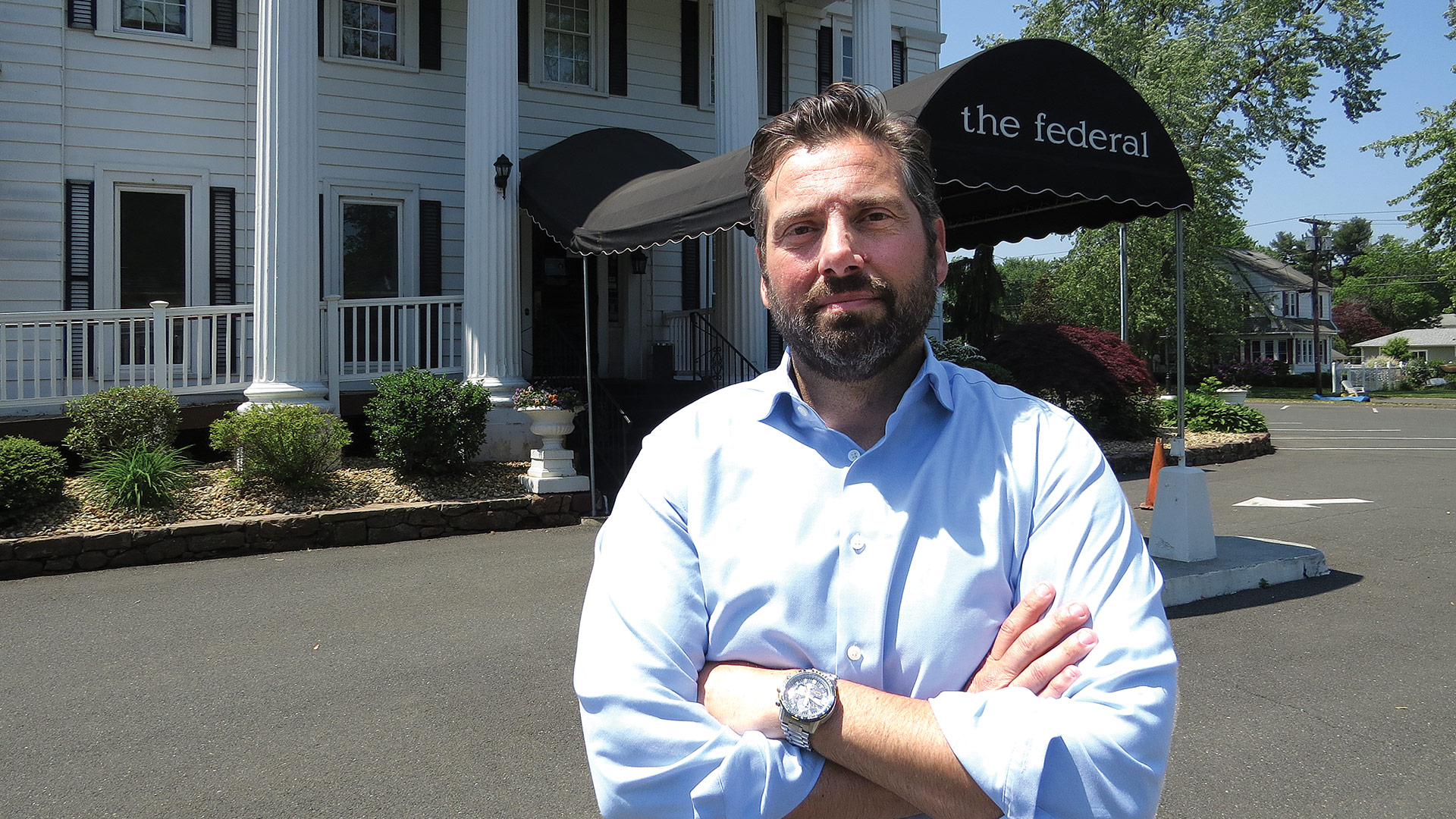



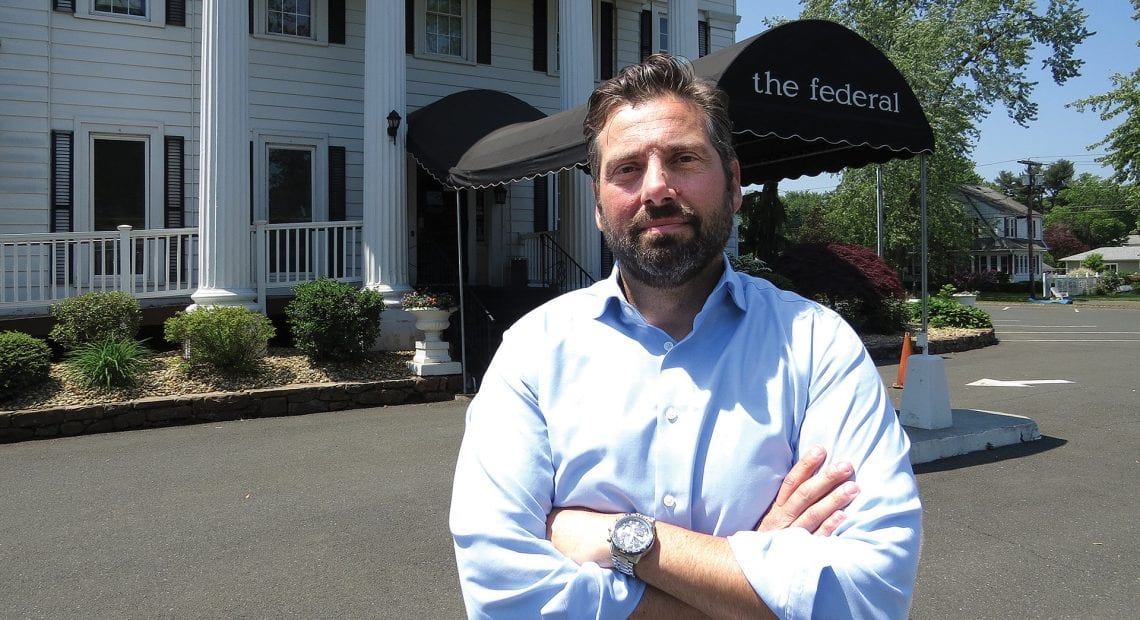





 “This reversal is traumatic in some ways. Everything we’ve been doing for the last year and half is out the door in 10 days.”
“This reversal is traumatic in some ways. Everything we’ve been doing for the last year and half is out the door in 10 days.”